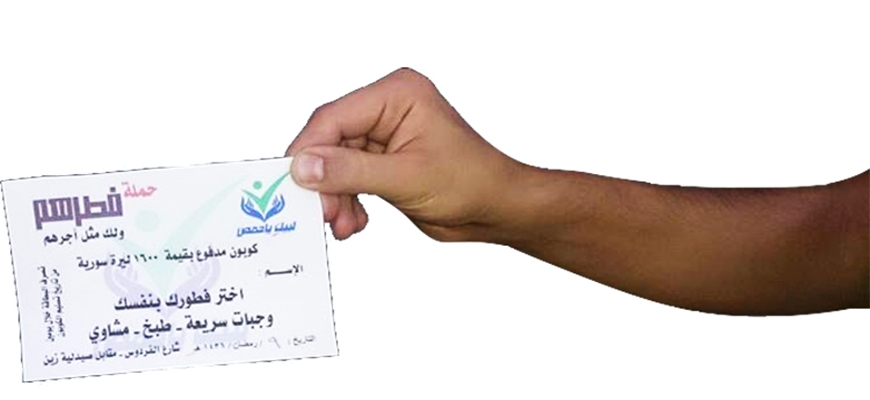
30 Jun 2015
Since July 2013 Assad forces have surrounded Al-Waar neighborhood, where more than 100 thousand people live, most of them displaced from the old neighborhoods of Homs, and arrived before sieging the neighborhood.
Two months ago, it was allowed to enter limited amounts of food aid, under the auspices of the United Nations, and it was distributed through relief associations. Walid a manager in “Labayk Ya Homs” campaign says, «intervention of goods is in very small quantities, and depends on the mood of the military at the checkpoint, if they are not in mood, no good will enter»; and confirms that the system barriers steal large amounts of materials without any control.
The percentage of high prices in the neighborhood differs according to the type of material, ranging from 5 to 20 times, and hydrocarbons are at the top of the list height ratios. Under these conditions, most of the families are only spectators, not a potential customer to buy them. This is because of many reasons; high unemployment rates, and a lack of job opportunities, exploiting traders to people’s need by raising prices in order to increase profits or make up for what steals Assad barriers.
«Cookie Homs» an activist in Al-Waar neighborhood says, “Many of the relief associations in Homs went to work in areas with higher media coverage of media, in order to win the sympathy of supporters and ensure their continuity; which reflected negatively on the relief work in the neighborhood, and caused it to disappear completely except for some projects during Ramadan.”
By Ramadan, Associations and campaigns started projects for Iftar dinner, providing daily meals for poor families. Cookie Homs, said the efforts could not meet the needs for people inside the neighborhood.
“Labayk Ya Homs” campaign responded to the idea of the distribution of «coupons» asked by neighborhood activists, including contracting with certain restaurants holder and chose a meal available within the Coupon, without paying for it. But the idea met with applause by parents and activists, who have called other relief agencies to follow the same method to save money, effort and raise the quality of meals provided.

 عربي
عربي